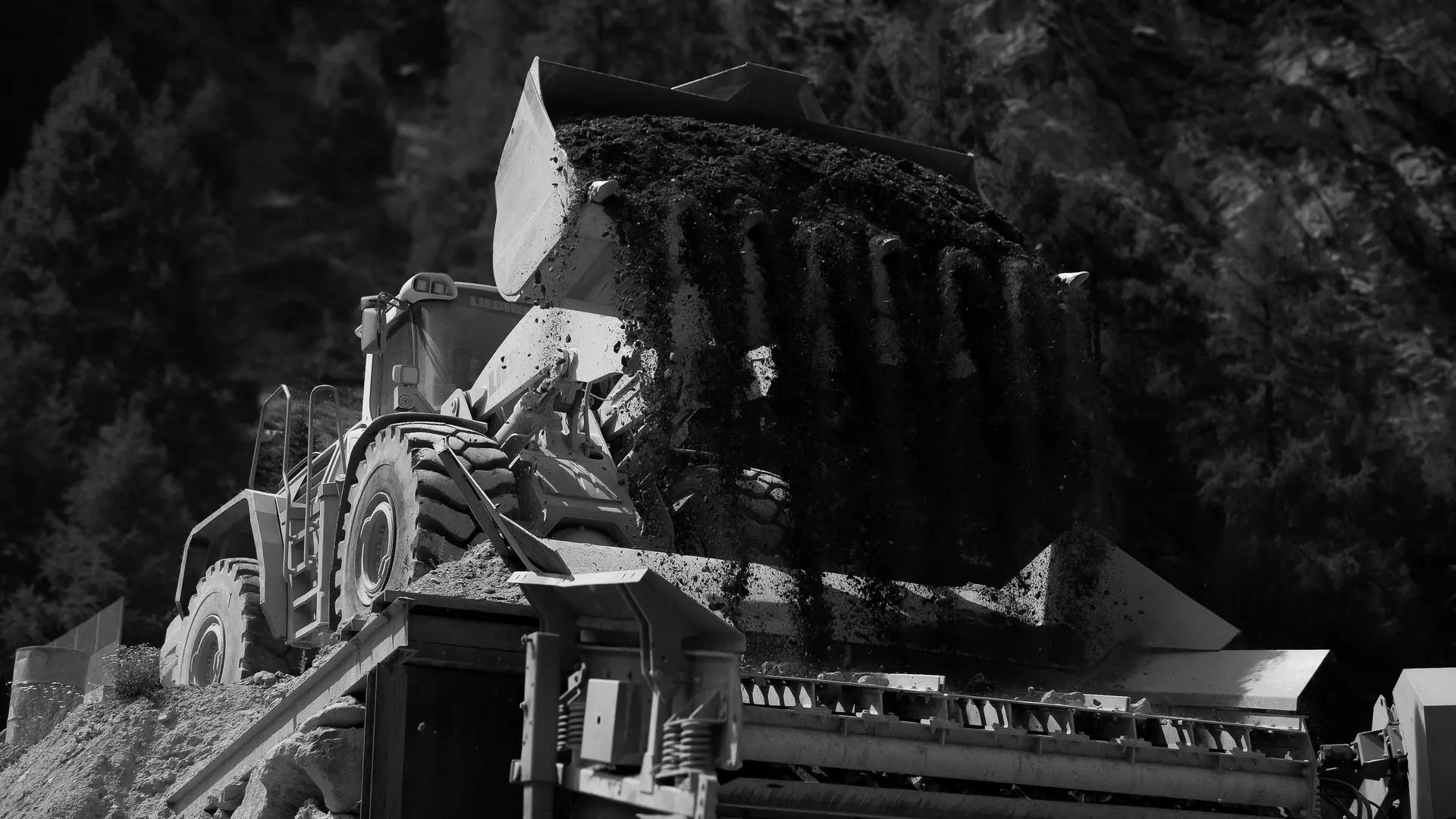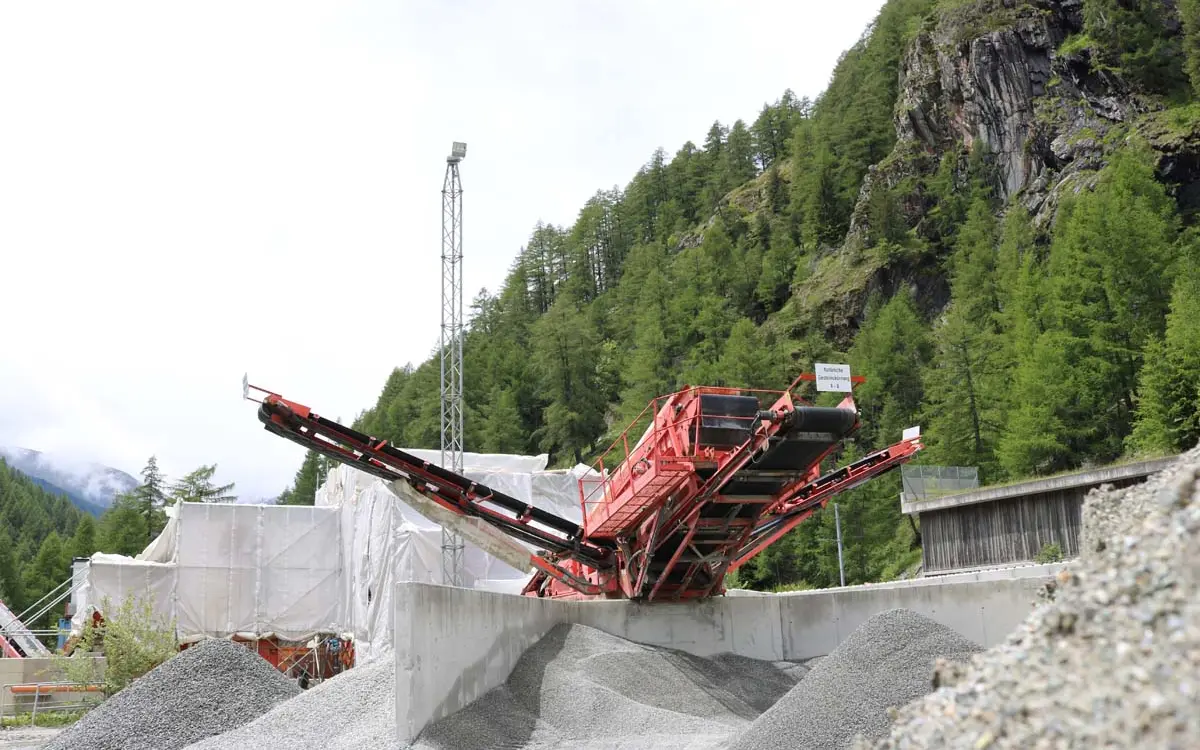The Schaller Beton AG plant in Zermatt has been in operation since 2007. Remarkable, above all because of the exceptional production conditions in the Valais tourist destination.
If you want to build in Zermatt, you have to be well organised. Excavation work can only be carried out in May and October. It is important to make rapid progress. The removal and processing of the excavated material is a particular challenge. Enormous quantities are produced in a short space of time.
Can be charged with excavated earth or mixed demolition waste
This is where the Schaller Group comes into play. Since 2007, Schaller Beton AG, which belongs to the Group, has been operating the semi-mobile Terex MP 300 wet processing plant with a heavy-duty washer on the "Zum Biel" industrial site on the outskirts of Zermatt. "It is simply built, reliable and, above all, very flexible to use," says business owner Benjamin Schaller. Flexibility means here: The plant can be fed with excavated earth or pre-crushed mixed demolition waste, depending on what is currently available in the Zermatt construction industry. The delivered material is temporarily stored on the site and then gradually processed over the course of the year. It is then utilised as concrete components in the company's own concrete production. Gravel products with grain sizes of 0/4, 4/8, 8/16 and 16/32 are manufactured in accordance with the applicable standards.
High capacity utilisation
The Schaller Beton AG plant is the only one in Valais that can process mixed demolition waste. For this reason, and due to its dual use as an excavation and mixed demolition waste processing plant, capacity utilisation is extremely high. In addition, operation is only possible from April to November due to the climatic conditions in the mountain region. The plant runs for around 9 to 10 hours every working day. On an annual average, this adds up to between 1,600 and almost 1,800 hours and around 23,000 hours over the entire operating time of the plant to date. 300 to 500 m3 of excavated material is processed per day. During operation, an impressive 2,500 litres of water per minute flow through the plant in a closed circuit. The water is replenished from the plant's own spring.
Durable structure
It is all the more astonishing that the system still works with the original design despite this strain, apart from common wear parts such as plastic screening media. Even the shell and structure of the screen box and sword washer are the same - the two components that are subject to the most wear and tear in a processing plant of this type and which have a significant impact when it comes to replacement. "In general, it is a comparatively low-maintenance and very low-failure system," says Benjamin Schaller.
Contribution to the circular economy
Around 90 per cent of the material processed in the MP 300 comes from Schaller Group construction sites. The gravel products, in turn, are used in the company's own concrete production and thus contribute to the circular economy of the regional construction industry.





